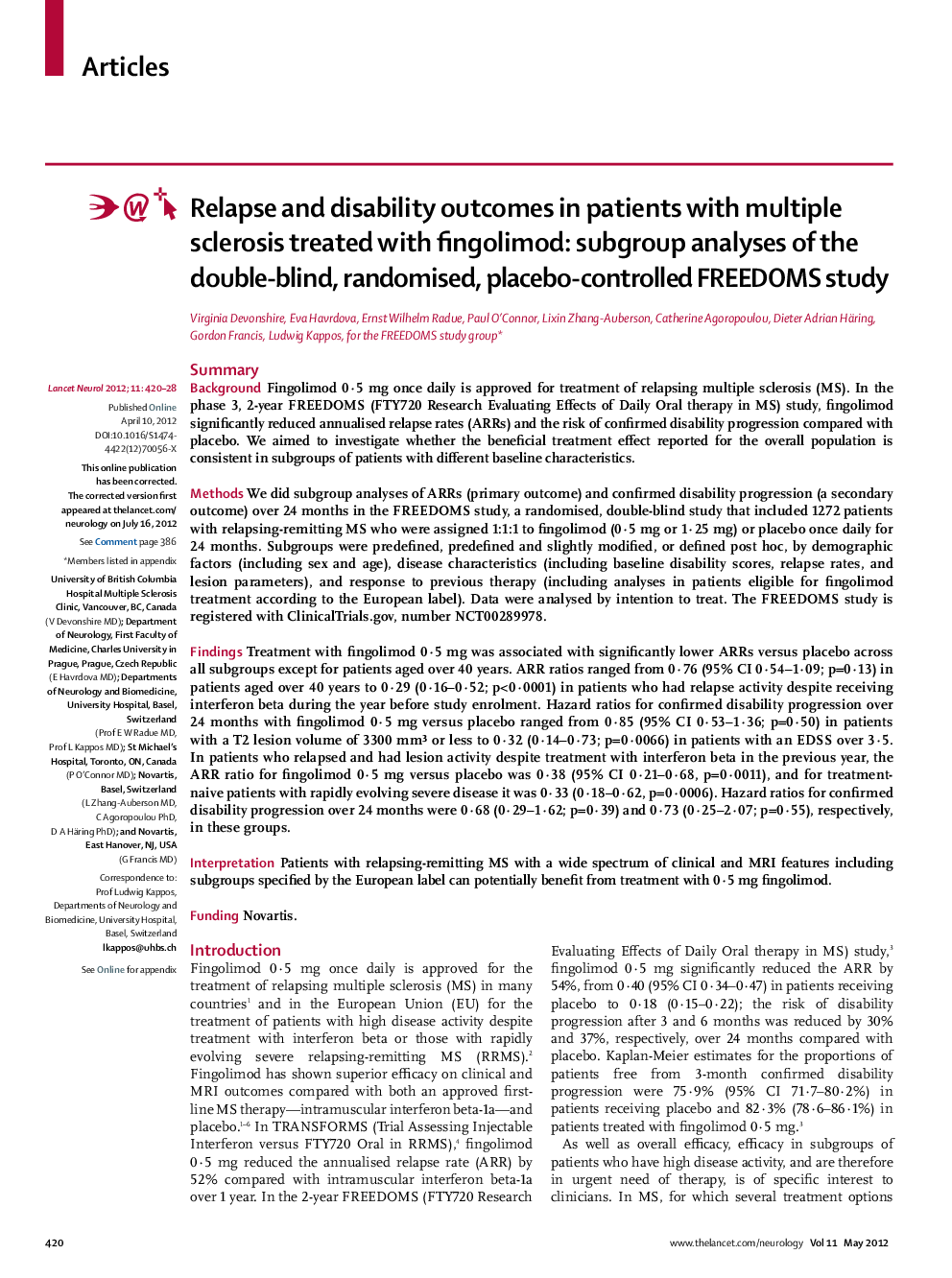| Article ID | Journal | Published Year | Pages | File Type |
|---|---|---|---|---|
| 3066917 | The Lancet Neurology | 2012 | 9 Pages |
SummaryBackgroundFingolimod 0·5 mg once daily is approved for treatment of relapsing multiple sclerosis (MS). In the phase 3, 2-year FREEDOMS (FTY720 Research Evaluating Effects of Daily Oral therapy in MS) study, fingolimod significantly reduced annualised relapse rates (ARRs) and the risk of confirmed disability progression compared with placebo. We aimed to investigate whether the beneficial treatment effect reported for the overall population is consistent in subgroups of patients with different baseline characteristics.MethodsWe did subgroup analyses of ARRs (primary outcome) and confirmed disability progression (a secondary outcome) over 24 months in the FREEDOMS study, a randomised, double-blind study that included 1272 patients with relapsing-remitting MS who were assigned 1:1:1 to fingolimod (0·5 mg or 1·25 mg) or placebo once daily for 24 months. Subgroups were predefined, predefined and slightly modified, or defined post hoc, by demographic factors (including sex and age), disease characteristics (including baseline disability scores, relapse rates, and lesion parameters), and response to previous therapy (including analyses in patients eligible for fingolimod treatment according to the European label). Data were analysed by intention to treat. The FREEDOMS study is registered with ClinicalTrials.gov, number NCT00289978.FindingsTreatment with fingolimod 0·5 mg was associated with significantly lower ARRs versus placebo across all subgroups except for patients aged over 40 years. ARR ratios ranged from 0·76 (95% CI 0·54–1·09; p=0·13) in patients aged over 40 years to 0·29 (0·16–0·52; p<0·0001) in patients who had relapse activity despite receiving interferon beta during the year before study enrolment. Hazard ratios for confirmed disability progression over 24 months with fingolimod 0·5 mg versus placebo ranged from 0·85 (95% CI 0·53–1·36; p=0·50) in patients with a T2 lesion volume of 3300 mm3 or less to 0·32 (0·14–0·73; p=0·0066) in patients with an EDSS over 3·5. In patients who relapsed and had lesion activity despite treatment with interferon beta in the previous year, the ARR ratio for fingolimod 0·5 mg versus placebo was 0·38 (95% CI 0·21–0·68, p=0·0011), and for treatment-naive patients with rapidly evolving severe disease it was 0·33 (0·18–0·62, p=0·0006). Hazard ratios for confirmed disability progression over 24 months were 0·68 (0·29–1·62; p=0·39) and 0·73 (0·25–2·07; p=0·55), respectively, in these groups.InterpretationPatients with relapsing-remitting MS with a wide spectrum of clinical and MRI features including subgroups specified by the European label can potentially benefit from treatment with 0·5 mg fingolimod.FundingNovartis.
